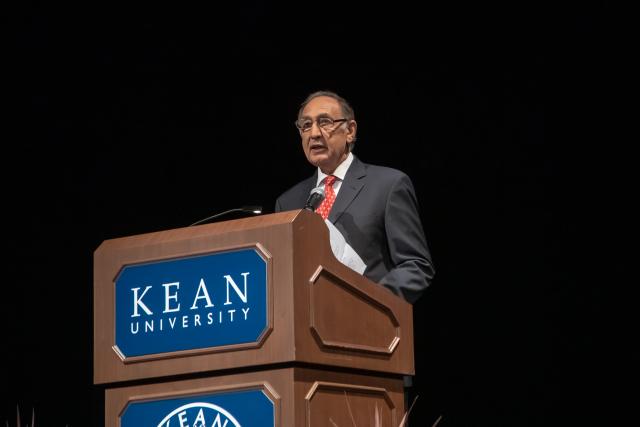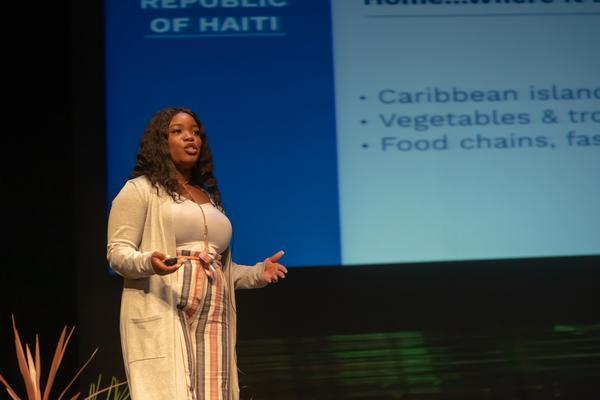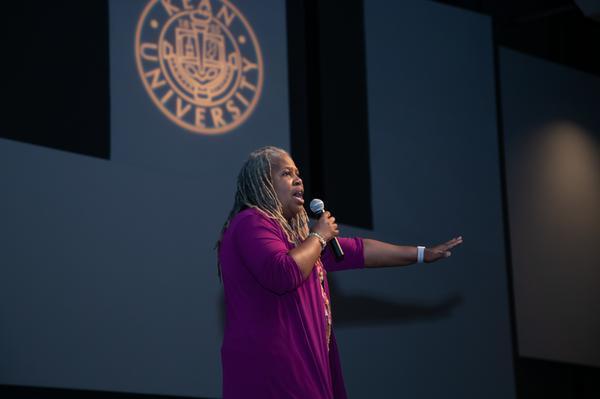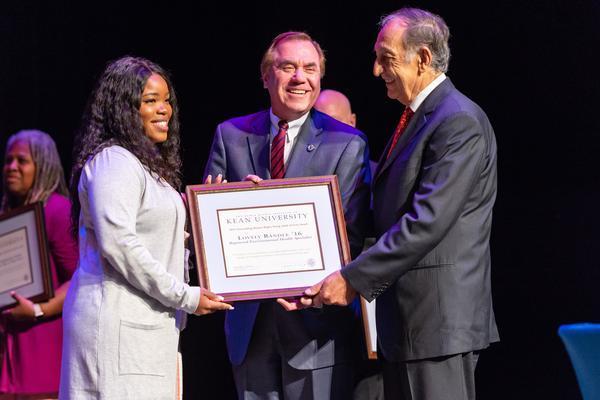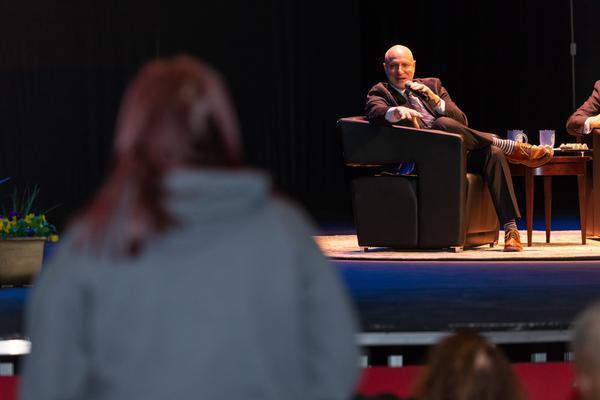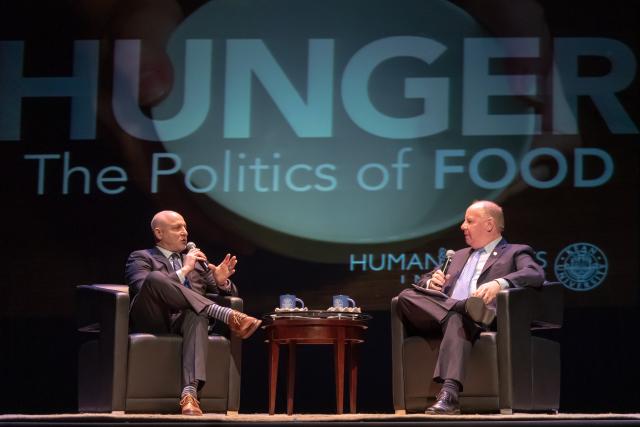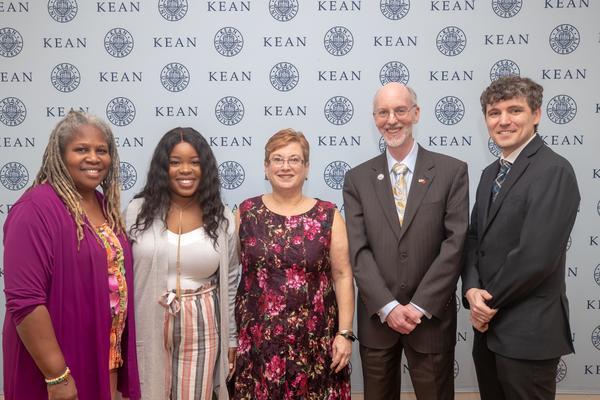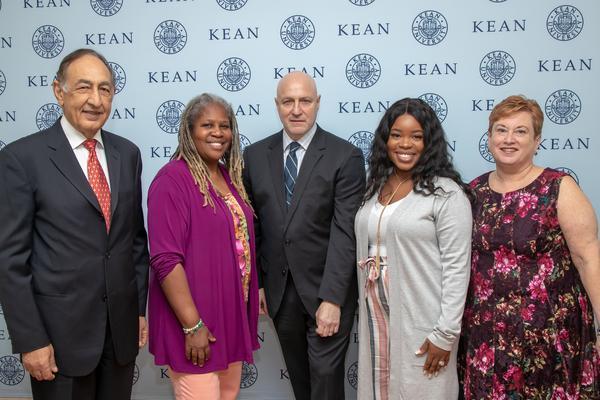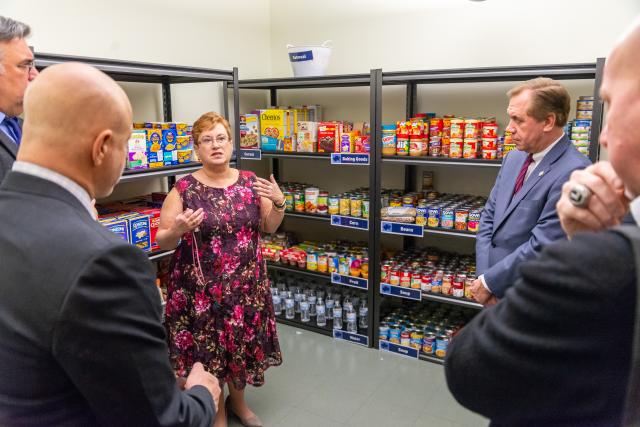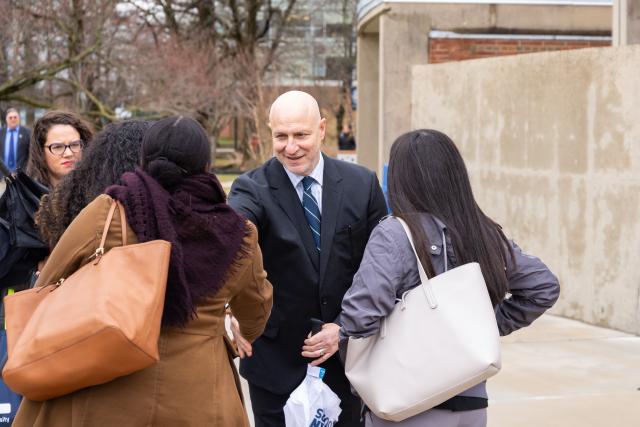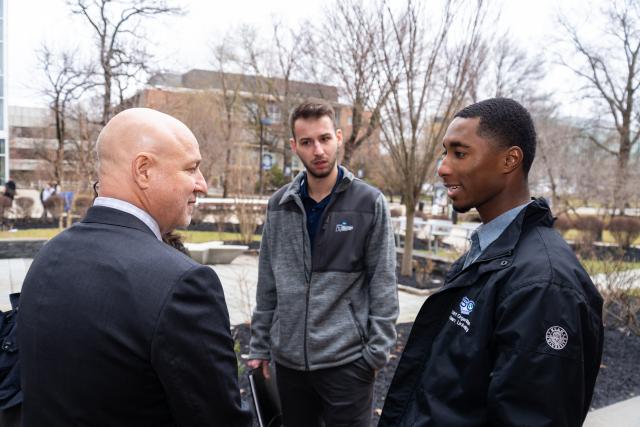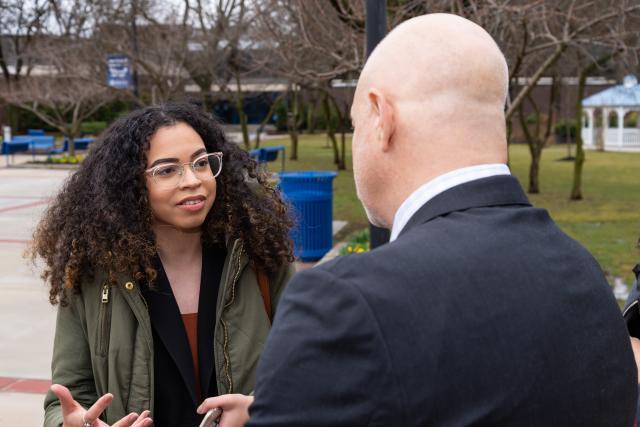Award-winning Chef Tom Colicchio Advocates for Healthy Food for All
Top Chef's Tom Colicchio sat down for a conversation with Elizabeth Mayor J. Christian Bollwage ’81, ’89 MPA at Kean's Human Rights Institute conference, Hunger: The Politics of Food
Food policy activist and head judge of Bravo’s Top Chef is featured speaker at Kean University’s Human Rights Institute conference.
Saying that hunger and food insecurity are present in every county in the nation, award-winning chef and food policy activist Tom Colicchio called on all Americans to advocate for healthy food for everyone.
Colicchio, head judge on Bravo’s Top Chef, was the featured speaker at the 12th Annual Human Rights Institute Conference, Hunger: The Politics of Food, held at Wilkins Theatre on Friday, March 22.
“There is a point where the food system intersects with social justice,” Colicchio said. “We have enough food. The reason people are hungry is we don’t have the will to make sure everyone is fed.”
Colicchio, who was born and raised in Elizabeth, sat down for a conversation with Elizabeth Mayor J. Christian Bollwage ’81, ’89 MPA, and charted his course from winning multiple James Beard Foundation awards to becoming an anti-hunger activist. He said the food production and distribution system in the United States should be as reliable and far reaching as the electric grid.
“We know the electric system is something we can count on. Our food system is not doing that. We need a system that everyone can benefit from,” Colicchio said. “In this country, we produce calories that are cheap, but nutritious food is expensive.”
Colicchio urged the hundreds of people in attendance, many of them college and high school students, to get involved.
“It is great to do a can drive around Thanksgiving and Christmas, but it won’t really move the needle. We have to use our voices. We have to demand from our politicians that they focus on and fix this issue, that it is worth fixing,” he said.
Kean President Dawood Farahi, Ph.D., reminded the audience that the annual conference is designed to educate students on key human rights issues and encourage activism.
“We can talk about all the different freedoms that a modern society can provide, but they mean nothing if you cannot feed yourself,” Farahi said. “We're looking at the richest state in the richest country on the planet. Yet every night, 300,000 children go to bed hungry. How does that make sense for New Jersey?"
Human Rights Institute Director Lauretta A. Farrell, D.Litt., called the lack of adequate, nutritious food the most basic human rights violation in the world today.
“Poor harvesting practices, food waste, global conflict, isolationist policies and infrastructure issues all create barriers to accessing food, resulting in epidemic levels of hunger,” Farrell said. “In the United States, nearly 30 million adults, and 13 million children are living in food-insecure households.”
Karen Washington, a leader in the urban farming movement, also spoke at the conference.
“Everyone has to play a part in hunger and poverty issues, especially around food because food is the common denominator,” Washington said. “Consumers should be educated. Go visit a farm. Go visit a community garden. Get your hands in the dirt. We need to come back to the land to see where our food comes from.”
Kean alumna Lovely Randle ’16 MPA, a Union County public health coordinator, presented her thesis research, which showed a correlation between the number of fast food restaurants and the proximity to schools in lower and median income neighborhoods.
“I would love for my research to spark more interest in looking at this issue,” she said. “I feel like there should be incentives in place for businesses to offer healthier options, especially for the youth.”
All three speakers received Human Rights Institute awards for their activism. Also honored were: Franklin Stebbins, a teacher at Arthur L. Johnson High School in Clark, as the Dr. Hank Kaplowitz Outstanding Human Rights Educator; and Newark West Side High School, as Outstanding Human Rights School Community Activists.
